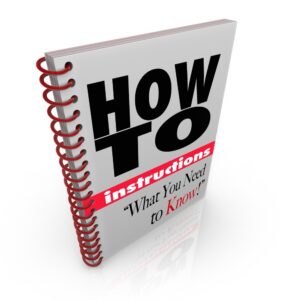By Rose O. Sherman, EdD, RN, NEA-BC, FAAN
Nurse managers today struggle with boundary and communication issues with their staff. Team turnover is high on many units, and few expert nurses are available to explain unit norms to new staff. Why not make things easier for staff and prepare a user’s guide to working with you?
I first heard about this idea in a blog post by Julie Zhuo, who recommended that leaders create a manual on how to work with them. Since then, I have used this idea in Nurse Manager programs, and the participants have told me it is beneficial. One new manager told me that it saved her time and reduced misunderstandings. She said that she adds or elaborates on questions in the manual as issues arise. She is introverted, so in her introduction to herself – she tells her staff this and explains why she sometimes needs to go into the office to regroup and re-energize. Before I explained this, she laughed; some of my staff thought I was a snob or just antisocial.
Below are examples of things you can include in your user’s guide to working with you:
Introduction – Provide background information about yourself and your leadership role and responsibilities in the nurse manager role.
How do I view success – What values underpin your understanding of success? Do you have a leadership philosophy or style?
How I communicate—What is your communication style? What are your preferred methods of communication (in person, email, text, phone)? How do you like to conduct staff meetings/huddles, and what are your expectations around staff participation? How quickly do you return emails or text messages? Who should staff communicate with when you are absent (weekends and nights)?
Things about me that may annoy you – What are some of the things about your leadership style that your staff may misunderstand? Ex. If you have a direct communication style, it could be interpreted as harsh, but that is not your intent.
What gains or loses your trust – What qualities do you value that help build trust? What triggers cause you to lose faith (ex., gossiping, failing to keep commitments, not accepting accountability, lying)?
What are your strengths – What do you love to do and help others with (ex., coach staff, teach, de-escalate crises)?
What are your growth areas? If you are working on weaknesses that staff can help you with, let them know (e.g., develop more tact, be timelier with feedback, and follow up on unit problems).
What are your expectations of staff – What do you consider professional behavior? Do you have expectations of your team that might differ from other leaders? What is excellent customer service from your perspective?
What is your philosophy about giving and receiving feedback – How do you provide coaching and feedback (just in time or on a more scheduled basis)? How should staff provide you with feedback if there are problems with the unit? What are your expectations around teamwork and conflict resolution?
Designed using ideas from Julie Zho https://lg.substack.com/p/the-looking-glass-a-user- guide-to
© emergingrnleader.com 2024
Brand New Workshop for 2024 – Leading in the New World of Work. Click on Flyer The New World of Work Workshop
Bring the Nurse Leader Coach Workshop to Your Facility Virtually or Onsite. Click Here for the Nurse Leader Coach WS Flyer




 LinkedIn
LinkedIn Instagram
Instagram